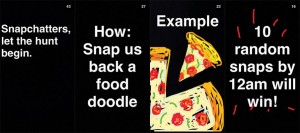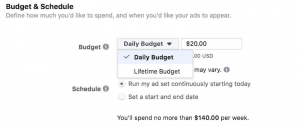A classical composer just brought down a Chinese state-run YouTube channel over copyright infringement
Kerry Muzzey is frequently engaged in a cat-and-mouse game with YouTube channels that steal his music. This is his biggest win yet.
A Chinese state-run TV channel’s YouTube presence has been taken offline after repeatedly infringing the copyright of a California-based composer.
Kerry Muzzey’s music has been played in the background of TV shows like Glee and So You Think You Can Dance?—two productions that legally bought licences to play his music in their shows. But Muzzey, who is based in California, spends much of his days battling those who are less scrupulous, trying to reclaim the rights to his music that has been used illegally in the background of TV shows, movies, and YouTube videos.
Muzzey wages war with those who steal his music using YouTube’s ContentID system, which automatically tracks where copyrighted material has been used, and allows copyright owners to issue strikes that put a freeze on the infringing copyright. If a YouTube channel receives enough copyright strikes, it’s taken offline permanently—or terminated. Until that point, the videos remain offline, unless Muzzey and the infringers reach an agreement—at which point he can lift the claims.
That’s how it’s meant to work in theory. But in practice, Muzzey has found YouTube’s copyright claims system labyrinthine, and its rules unequally applied. “The way this normally plays out is that YouTube will give a channel three strikes. Joe user gets three strikes as of the third strike, your channel’s terminated,” says Muzzey. In his experience, YouTube gives large channels a seven-day grace period to resolve issues with the claimant—or find their account terminated. But historically, Muzzey has found YouTube seems to flout those rules with accounts that are incredibly large, such as those owned by China Central Television (CCTV), a network of dozens of TV channels run by the Chinese state within its borders.
So when CCTV-6, the official movie channel of the Chinese state broadcaster appeared in his list of YouTube channels infringing his copyright earlier this year, Muzzey wasn’t confident that much would happen. “I have constant run-ins with not just CCTV, but networks like Hunan TV, Beijing TV, Mango Digital, iQiyi, Asian Media Network—these are all the big TV networks and distributors in China,” he says. Occasionally, individual videos will be taken down by YouTube for copyright infringement because his music keeps turning up in their movies and TV shows, but that tends to happen in a vacuum. “What I’ve found is that these networks don’t come to you to try to resolve a one-off strike, “ he says. “What I’ve gathered is that they feel some sense of immunity coming from YouTube. They’re basically too big to take down.”
But the scale of the infringement by CCTV-6 irked Muzzey when he encountered it earlier this year. In all, 13 copyright strikes were raised through YouTube’s ContentID system: Three uses of his music in movies, and nine in a talk show about motion pictures. (CCTV-6 did not respond to Fast Company’s request for comment.)
Muzzey exercised his right to issue copyright strikes against them, and CCTV-6 was informed about the risk of their channel being terminated. At that point, the channel used both the carrot and the stick to try and resolve the issue. “They sent me a very nice email saying: ‘We would love to resolve this with you amicably,’ and at the same time that that email came I got their counter notification that they had filed with YouTube saying these claims are false,” he says.
Muzzey replied to their email trying to resolve the issue saying their issuing of a counter notification was false, because they hadn’t obtained licenses to use his music. “In a counter, you’re saying under penalty of perjury that you do,” he says. “And they admitted in their reply, ‘We know we don’t have licenses, we’re going to use the counter notification feature to buy some time,’” Muzzey says.
Despite the fact that CCTV-6’s YouTube channel, which hosted 22,000 videos and had 2.5 million followers, had received more than the three copyright strikes that would ordinarily result in a termination (or permanent ban of the account), YouTube didn’t take action beyond confirming to Muzzey that the infringing content wouldn’t be reinstated. “YouTube is immunizing CCTV-6 against my claims, even though I have an email directly from them saying, ‘We know this is false. We’re doing it to buy some time,’” he claims. (YouTube declined to comment for this story.)
Not terminating CCTV-6’s channel appeared to be in violation of YouTube’s own rules—and crucially allowed the TV network to continue to upload new content. That was the status quo, until Muzzey asked his litigation counsel to send a legal notice to YouTube pointing out the breaches of copyright law. Two days later, after the litigation counsel presented the same evidence Muzzey did, YouTube took the channel down entirely.
“I googled CCTV-6 to pull up their YouTube channel, and it was gone,” says Muzzey, who describes it as a David versus Goliath victory. He says he has since been contacted by CCTV-6, who offered him $25,000 to resolve the 13 copyright infringements that put paid to their channel, claiming that was all they could afford. He turned them down.
And the channel still remains down. “That tells me that I was right. My lawyer was right. YouTube knew that they were right,” he says. “It’s offline. 22,000 videos, 2.5 million followers. And one branch of Chinese state TV doesn’t have a YouTube channel now.”

ABOUT THE AUTHOR
(9)
Report Post






